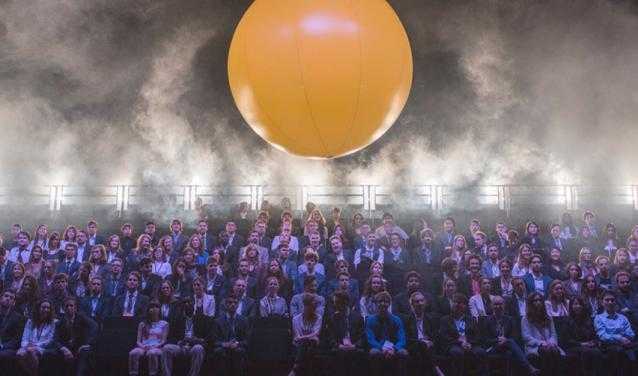Home>Public Affairs revisited

24.03.2017
Public Affairs revisited
The Experimental Programme in Political Arts, a one-year Master’s programme created in 2010 by French philosopher Bruno Latour, is positioned at the crossroads of the social sciences, politics, and the arts. Academic director Frédérique Aït-Touati explains the programme’s unique approach and the reasons behind it.
What are the programme’s objectives? Who is it designed for?
The Sciences Po Experimental Programme in Political Arts intends to question issues surrounding “public affairs” by putting in place an experimental space that takes inspiration from pragmatist philosophy, sociology, the history of science and the history of art.
The programme is positioned at the crossroads of the social sciences, politics, and the arts, as can also be said of the work of its founding father, French philosopher Bruno Latour. It is designed for young international professionals: social science researchers, artists (in the wider sense of the term, including architecture and design) and those working in the cultural or political spheres.
What kind of educational approach does the programme adopt?
The Experimental Programme in Political Arts has developed very specific teaching and learning practices over the years. Let me mention the three main ones. First, participants work in groups for a whole year on practical projects commissioned by external partners. The commissions concern real-world issues, and fulfilling them involves research, inquiry and creation. If we had to find a synonym for the programme, I would define it as a school of experiments or a school of situations, which are the basic aspects of the pragmatist approach. Ethnography–among other social sciences–art and visual culture are all part of the toolkit and things that students need to learn.
Second, the notion of “becoming sensitive” is central. We encourage students to understand the locality and the situation in which they are working carefully so that they can choose their tools properly.
Finally, another important aspect is equality between different media: when you undertake an exercise or try to answer a specific question, you can choose your medium. You can use a theoretical piece of writing, an image, a map or a film… whatever you choose, we consider it a legitimate medium, including philosophical and sociological texts. What we try to do is to avoid regarding language as a kind of preconfigured tool; language itself has to be performed in a certain way, just like when you make films.
This year, the theme is “Disoriented Peoples. Where Is There to Land?” Why was this subject chosen? How will you address it and what type of work are you expecting students to produce?
This theme is taken from Bruno Latour's current thinking about how politics is deeply transformed by ecological matters. It’s been chosen for a year that promises to be very special and exciting for us, as we are going to hold a new political and theatrical simulation with our students at the Théâtre des Amandiers, performed as a public event in May 2018. The simulation will follow a similar protocol to Make it Work (an enactment of climate negotiations organised by the Experimental Programme in Political Arts in May 2015), drawing on the combined resources of design, performance and social science research.
It will be a way to "celebrate" May ‘68 without focusing on the past, but rather on the present political situation and how to redefine the older lines of class struggle when the question of ecological changes is taken into account (or denied as it is by the new US government). The theme suggested for this year, “Disoriented Peoples. Where Is There to Land?” is a very open question that will help us to recruit the most motivated students to design and devise this new political experiment with us.
Related links